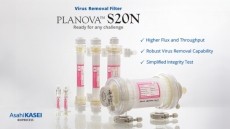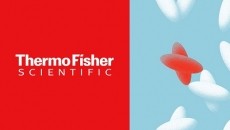GSK signs a $1.5bn deal with ChemoCentryx
worth $1.5bn (€1.2bn) which will provide the company with access to
selected targets from one of the broadest pipelines of
chemokine-based therapeutics in the biotech industry.
The deal marks the second one to have arisen as a result of GSK's drug development partnering unit, the Centre of Excellence for External Drug Discovery (CEEDD).
It also reinforces an emerging trend that sees risk-sharing/reward-sharing alliances becoming popular with biotech and smaller pharmaceutical companies.
The hope is that such alliances will help speed up the development time of new in-licensed drugs from target to clinical proof through risk-sharing/reward-sharing alliances with biotech and smaller pharmaceutical companies.
Under the terms of the agreement, GSK will have the right to discover, develop and market the company's novel medicines, targeting four chemokine and chemo-attractant receptors for treating a variety of inflammatory disorders, including Traficet-EN, which is in late-stage development for inflammatory bowel disease (IBD).
Financial details that were disclosed showed that the licensing deal was worth up to $1.5bn in milestone payments to ChemoCentryx, which will receive an upfront payment of $63.5m, in both cash and equity.
"The ChemoCentryx alliance is a landmark relationship for the CEEDD. This collaboration clearly demonstrates GSK's commitment to gain access to leading-edge, best-anywhere science and we are excited by the opportunity to work with ChemoCentryx and its world class team," said Maxine Gowan, head of GSK's centre of excellence.
"Accessing its expertise and four advanced chemokine programmes, including Traficet-EN, will allow us to bring novel medicines to patients with high unmet need."
The deal closely follows the $83m deal struck with US pharma company, Pharmacopeia, earlier this year, continuing GSK's links to biotech companies.
GSK has previously stated that it wants to make the most of new approaches in targeting diseases by setting up long-term agreements with smaller pharma and biotech companies, which have proven very successful in developing innovative medicines using novel molecules in recent years.
GSK's strategy has resulted in the formation of the CEEDD to create small, independent and accountable R&D teams and the company says it is "virtualising" a portion of its pipeline.
"This important alliance with GSK will provide us with access to significant capital in the near and long term to support the ongoing development in each of these programmes, as well as the ability to continue to discover and bring forward multiple new compounds targeting the chemokine system," said Thomas Schall, chief executive of ChemoCentryx.















